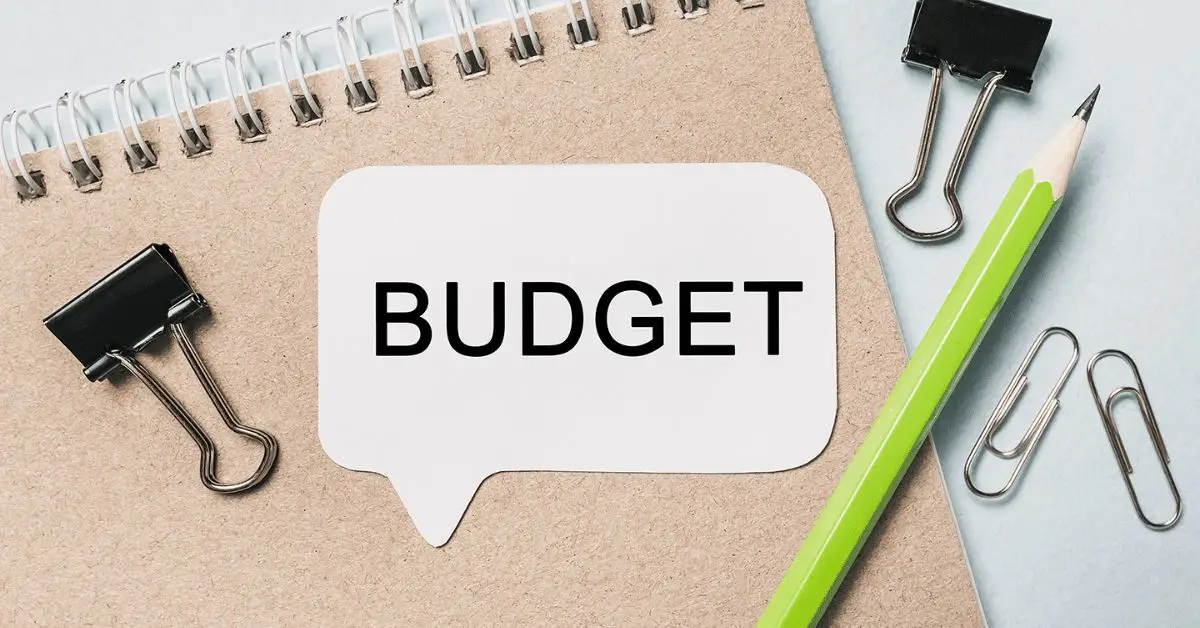What Smart Buyers Are Doing Differently in a Volatile Housing Market
If you’re trying to buy a home in the U.S. right now, you don’t need a market update—you’re living it.
Rates are higher than they’ve been in years. Inventory’s tight in some places, rising in others. Homes are still going fast in desirable neighborhoods, but buyers are more cautious. It’s confusing, noisy, and honestly? Overwhelming.
But here’s the part nobody’s talking about: even in a market like this, you’re not completely at the mercy of the headlines.
You still have control over key decisions. And those decisions matter more now than ever.
The smartest homebuyers I work with aren’t trying to predict what the Fed will do next quarter. They’re focused on the things they can influence—things that protect their financial future and give them leverage, no matter what the market throws at them.
Let’s start with the one that can make or break your entire buying journey.
Your Budget Is Still Your Call — Don’t Let the Market Set It for You
Yes, mortgage rates are up. Yes, home prices haven’t dropped as much as some people hoped. But your budget? That’s still 100% in your control—and it’s your most powerful lever as a buyer.

You decide your ceiling. You decide what’s comfortable for your lifestyle, not what a lender says you can technically afford. There’s a big difference between getting approved for a $500,000 loan and being able to sleep at night knowing your monthly payments won’t wreck your cash flow.
Now’s the time to reverse-engineer your affordability. Start with what you can safely spend each month—not just on the mortgage, but also on property taxes, insurance, HOA fees, and maintenance. Then work backward to see what price range you should be looking in.
According to Interstate Home Loans, a fixed-rate mortgage at 6.9% could increase your monthly payment by hundreds of dollars compared to a rate from just two years ago. That’s not something you can ignore.
Smart buyers are adapting. Some are buying below their max and setting aside cash for future rate drops. Others are using rate buydowns or negotiating seller concessions to ease the upfront hit. The key is to avoid getting caught up in bidding wars or stretching just to “win” a house.
A solid budget keeps you grounded. It gives you the confidence to walk away from bad deals and keeps your long-term goals intact.
So before you even start scrolling through listings or booking showings—get your budget locked in. That’s the foundation everything else sits on.
Are you starting with your real monthly comfort zone—or letting the market push you higher than you planned? Think it through before you shop.
You Control the Timing — Even If It Doesn’t Feel Like It
In a market like this, it’s easy to feel rushed. Maybe your lease is ending. Maybe you’re afraid rates will climb even higher. Or maybe friends and family keep asking, “So… when are you buying?”
But here’s the truth: you control when you buy. Not the market. Not your realtor. Not your timeline anxiety.
Smart buyers know when to hit pause.
In fact, data from Investopedia shows inventory is starting to loosen in many markets—even if it’s not where it was pre-pandemic. That shift matters. Sellers who’ve been sitting on unrealistic prices are starting to adjust. We’re seeing more price cuts, longer days on market, and more room to negotiate. That gives you options.
And if you’re not finding the right fit now? Wait. Renting for a few more months might cost a little in the short term—but overpaying for the wrong house costs way more in the long run.
The mistake I see too often: buyers rushing into deals just to “lock in a rate.” But your mortgage is only part of the equation. If the house doesn’t meet your needs—or stretches your finances—it’s not worth it. Especially when many buyers today are refinancing within 18–24 months as rates shift.
You also have the advantage of using seasonal timing. Spring and early summer bring more listings but also more competition. Fall and winter tend to slow down—fewer bidding wars, more motivated sellers. That seasonal dip is something most articles skip over entirely, but it’s a real factor you can use to your advantage.
The bottom line? Timing isn’t just about rates or headlines—it’s about what works for you. The right moment to buy is when the numbers make sense and the house is a good fit. Not before.
Are you buying because it’s right—or because you feel pressured by the market? Give yourself permission to wait. That’s also a smart move.
You Control the Type of Home You Buy — And That Choice Shapes Everything
Most buyers get stuck thinking their only decision is whether to buy or not. But what you buy is just as important.

You have control over what kind of home you pursue—new build, resale, fixer-upper, townhouse, condo, multi-family—and that decision can completely shift your financial strategy, timeline, and long-term satisfaction.
Let’s start with new construction. A lot of buyers assume new homes are out of reach right now, but builders are offering serious incentives to move inventory—rate buydowns, closing cost assistance, even upgrades. You won’t always find those with resale homes. So if you’re looking for something turnkey with fewer maintenance surprises, it might be worth checking builder listings.
On the flip side, resale homes offer more location variety and character. And because many are owned by individual sellers—not developers—you may have more room to negotiate, especially if the home’s been sitting a while. You can sometimes snag a better deal if you’re willing to do light updating.
Then there’s the fixer-upper route. A few years ago, this was the “smart buyer” move. Not anymore. According to Better Homes & Gardens, inventory for fixer-uppers has dropped, and renovation costs have soared. Materials are expensive. Contractors are booked out months. Unless you have experience or a contractor in the family, it’s not always the money-saver it used to be.
What most articles skip entirely is how choosing a different property type—like a duplex, condo, or multi-family—can open up affordability. I’ve worked with buyers who started looking at single-family homes and ended up buying a two-unit property where they live in one and rent the other. That rent covers part of the mortgage. It’s not for everyone, but it’s a way to regain control in a high-cost market.
Bottom line: the more flexible you are about what you buy, the more options you’ll have—even in a tight market.
Have you explored every property type—or are you only looking at what feels “typical”? Widen the lens. You might find a better fit than you expected.
You Still Control the Negotiation — If You Know Where to Push
Let’s get something straight: you’re not powerless just because it’s a “seller’s market.”

Even now, buyers across the country are negotiating more than you’d think—and not just on price.
According to Mike and Mary, the number of listings with price reductions is up nearly 15% year-over-year. And in many cases, sellers are more open to concessions—especially if the home’s been sitting or they’re relocating on a timeline.
The trick is knowing where to push, and how to do it without killing the deal.
Here’s where buyers are getting smart right now:
- Seller concessions: You can ask the seller to cover part of your closing costs or buy down your mortgage rate for the first year or two. It’s a win-win—they keep their asking price, and you lower your upfront cost.
- Inspection credits: Don’t waive your inspection. Use it. If the report turns up issues, negotiate a repair credit. Many sellers would rather throw in a $3,000 credit than delay closing to fix a roof or water heater.
- Flexible closing timelines: If you’re flexible, you can use that as leverage. Sellers dealing with job relocations or already-purchased homes may value speed more than money.
Most buyers don’t even realize this is on the table. They either assume the market is too competitive, or they’re afraid of pushing back. But the truth is, sellers aren’t getting the frenzy-level offers they were a year or two ago. The power balance is shifting—even if subtly.
Real buyers are sharing this too. A recent Reddit thread from a Seattle-based buyer broke down exactly how they negotiated pre-inspections and got sellers to lower their price after sitting on the market for weeks.
Before you even think about offers, make sure you’re not falling into the most common traps—these buyer and seller mistakes still show up every day and can cost you serious money if you’re not watching for them.
So no, you may not have control over the interest rate. But you do control the terms you accept. And the buyers who walk in informed—and confident—are the ones walking out with better deals.
Are you walking into offers with a strategy—or just hoping it works out? Don’t leave money on the table. Know your leverage and use it.
You Choose Your Team — And That Can Make or Break the Deal
The market may be out of your hands, but the people guiding you through it? That’s a choice you get to make—and it matters more than most buyers realize.
Let’s start with your agent. This isn’t just someone to open doors or set up listings. A good agent knows how to spot overpricing, write clean offers, navigate negotiations, and—when necessary—tell you to walk away. They’ve seen the cycles. They know what’s hype and what’s real.
So interview them. Ask how many buyers they’ve closed this year. Ask what strategies they’re using in this market. You don’t owe your loyalty to the first person who hands you a business card at an open house.
Same goes for your lender. Rates vary, sure—but so do service levels. You want a loan officer who’s fast, responsive, and willing to run multiple scenarios with you. The difference between a good and bad lender can be the difference between getting the house or losing it to someone else.
And don’t underestimate your network. Many buyers are still finding success through word of mouth—friends, coworkers, even family members who know someone selling off-market. According to a case study in Investopedia, one first-time buyer landed their home through their landlord—something they wouldn’t have found scrolling Zillow.
Also, if you’re getting help from family (say, a down payment gift), clarity matters. Consider looping in a financial planner or CFP to help structure that support properly. There are even Twitter threads from advisors breaking down how to do this without triggering tax issues. Search “CFP homebuyer gift” and you’ll find some excellent breakdowns.
Point is, you’re not just buying a home—you’re building a support system around the process. That team can protect you from overpaying, guide you through stress, and help you spot better options you didn’t even know existed.
Have you vetted your team—or just gone with what’s convenient? The right support can save you thousands and a whole lot of regret.
You Control the Data You Use — And That’s a Huge Advantage
Here’s one of the biggest shifts in today’s market: buyers who know how to use the right data are the ones making smarter, more confident decisions.
You don’t need to rely solely on your agent’s opinion or wait for listing updates anymore. Between online dashboards, market trackers, and localized housing reports, you can access the same data many professionals use—and use it to your advantage.
Sites like Redfin and Zillow now offer real-time stats on days-on-market, price cuts, and competition levels by zip code. Realtor.com publishes monthly housing trends showing how median prices and inventory levels are shifting across the U.S. And there are now dozens of free mortgage calculators that let you adjust scenarios based on down payment, credit score, or interest rate fluctuations.
You can even track local price trends through county records, Facebook investor groups, or Reddit threads tailored to your city. The smarter buyers are already doing this—not because they want to “play realtor,” but because they want to make decisions backed by actual numbers.
What most buyers don’t realize is that this kind of research changes how you shop. You start spotting overpriced homes quicker. You get a feel for how long things typically sit in your market. And most importantly, you stop reacting out of fear and start acting with intention.
Competitors skip this part entirely, but it’s a huge piece of control in your hands.
Use it.
Are you relying on surface-level listing sites—or are you digging into the real numbers behind your market? Data doesn’t just inform—it gives you leverage.
Let’s Recap — The 5 Things You Still Control
You can’t change mortgage rates. You can’t predict if prices will drop next quarter. But here’s what you can control—and these are the levers that actually shape your outcome as a buyer:
| What You Control | Why It Matters |
|---|---|
| Your Budget | Keeps your finances stable and helps you avoid house-poor traps |
| Your Timing | Lets you pause when needed, watch the market, and act strategically |
| The Type of Home You Buy | Impacts your cost, lifestyle, and long-term flexibility |
| Your Negotiation Strategy | Helps lower your upfront costs and strengthen your offer |
| Your Team (Agent, Lender, Network) | Shapes every decision, protects you from missteps, adds leverage |
| The Data You Choose to Use | Gives you insight most buyers skip—and that’s power |
This isn’t just about feeling better in a chaotic market. It’s about being the kind of buyer who doesn’t get pushed around by trends, pressure, or fear.
And that kind of buyer? They tend to end up with better homes, better terms, and fewer regrets.
Which of these levers are you actively using—and where do you need to get more intentional? Buying a home is still possible. Doing it smart just takes focus.
What Real Buyers and Experts Are Doing Right Now
If you’re feeling overwhelmed, you’re not alone. But here’s the good news: plenty of buyers are making smart, strategic moves in this market—and they’re sharing how.
In a Reddit thread from Seattle, one buyer broke down exactly how they navigated the market with pre-inspections, lender-side clarity, and flexible timing. Their biggest takeaway? “Be clear about your budget, be ready to walk, and treat this like a business decision—not an emotional one.”
Over on Investopedia, real case studies show buyers succeeding with unconventional strategies: buying from landlords, leveraging family gifts with proper documentation, or finding off-market deals through friends and coworkers. These aren’t just tactics—they’re proof that you don’t need a perfect market to land a smart purchase.
And if you search Twitter for “CFP homebuyer gift,” you’ll find threads from certified financial planners explaining exactly how to structure family support without tax complications. One advisor laid out how to use a properly documented gift letter to avoid red flags with lenders—something most buyers (and even some agents) completely overlook. And if you’re a student or recent grad trying to figure out how homebuying even works for you, don’t miss these 7 honest lessons that no one tells you upfront.
These stories have one thing in common: the buyers knew what they could control—and they focused on that.
They didn’t try to outguess the Fed. They didn’t wait for the market to “crash.” They got intentional. And it worked.
What’s your move going to be? You don’t need to wait for a perfect market—you just need to build your own strategy.
Smart Homebuyer Checklist — Your Next Steps, On Your Terms
You’ve got more control than you think. But control only matters if you act on it. Use this checklist to build a clear, intentional homebuying strategy—one that puts you in charge, no matter what the market’s doing.
Budget & Financial Clarity
- Calculate your maximum comfortable monthly payment—not just what a lender approves you for
- Use online tools to compare payments at different rates (5%, 6.5%, 7%)
- Set aside cash for closing costs, maintenance, and post-move expenses
Timing & Patience Strategy
- Know your ideal purchase window—and be willing to wait if needed
- Track inventory and price drops weekly in your target area
- Do the math on renting a little longer vs. rushing into the wrong house
Property Type Flexibility
- Explore options beyond single-family homes—condos, townhomes, duplexes, or even fixer-uppers
- Weigh long-term costs and risks of new builds vs. resale homes
- Ask how your lifestyle might fit better in a different property type
Negotiation Prep
- Plan where you’ll negotiate: closing costs, rate buydowns, repair credits
- Don’t waive your inspection—use it as leverage
- Look into the home’s price history and days on market to assess seller motivation
Build Your Team
- Interview multiple agents with strong buyer-side experience
- Get pre-approved by a lender who explains options clearly and responds quickly
- Let friends, coworkers, and family know you’re searching—off-market deals happen more than you think.
Your lender and agent will walk you through a stack of paperwork—but knowing which documents actually matter (and which ones you should question) gives you a huge edge. Here’s a breakdown of the 16 essential documents—and 6 you should never sign.
Use the Right Data
- Track your zip code’s average list prices, price cuts, and days on market
- Follow expert breakdowns on Reddit, Twitter, or through financial blogs
This isn’t a market where you wait for perfect conditions. It’s one where buyers win by being focused, informed, and flexible.
What’s the one area on this list you can act on today? Start there. That’s how real progress begins.
Want more smart homebuying insights? Visit Build Like New for expert tips, tools, and real-world guidance you can trust.
Disclaimer: This content is for informational purposes only and does not constitute financial, legal, or real estate advice. Always consult licensed professionals before making any major decisions.


